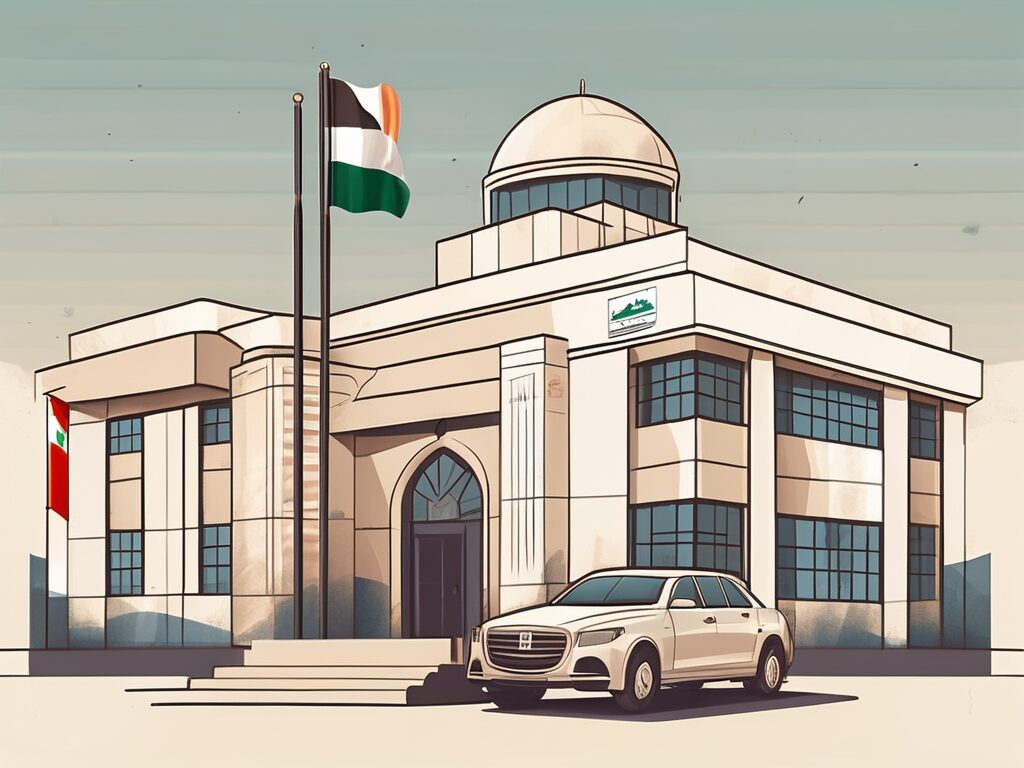Dubai, the glistening jewel of the United Arab Emirates, is a melting pot of cultures, traditions, and customs. As an international school teacher, understanding the local customs regulations is crucial to ensure a smooth transition into this vibrant city. This guide will delve into nine key customs regulations that you should be aware of.
1. Respect for the Islamic Religion
The UAE is a predominantly Muslim country, and respect for the Islamic religion is paramount. As a teacher, you’ll be expected to uphold these values in your professional and personal life. This doesn’t mean you need to convert to Islam, but it does mean respecting Islamic practices and traditions.
For instance, during the holy month of Ramadan, Muslims fast from dawn to sunset. Even if you’re not fasting, it’s considered disrespectful to eat, drink, or smoke in public during daylight hours. It’s akin to playing loud music in a library – it’s simply not done.
2. Dress Code
Modesty is key when it comes to attire in Dubai. While the city is quite cosmopolitan and tolerant, it’s important to remember that you’re in a country that values modesty. Think of it as attending a formal event – you wouldn’t show up in your beachwear, would you?
For women, this means avoiding revealing clothing, such as short skirts or low-cut tops. For men, shorts should be knee-length and shirts should cover the shoulders. This applies to both your work and leisure time.
3. Alcohol Consumption
Unlike some other Muslim countries, alcohol is legal in Dubai. However, it’s regulated. Think of it as the difference between having a pint at your local pub and downing shots at a nightclub. The former is acceptable, the latter, not so much.
Alcohol can only be consumed in licensed venues, usually hotels, and you must be over the age of 21. Public drunkenness and driving under the influence are serious offences, and can result in hefty fines or even imprisonment.
4. Public Displays of Affection (PDA)
Public displays of affection, especially between unmarried couples, are frowned upon in Dubai. It’s similar to the way you’d behave at a family gathering – a peck on the cheek or a hug is fine, but anything more is considered inappropriate.
It’s also worth noting that homosexuality is illegal in the UAE, and public displays of homosexual affection can result in penalties.
5. Photography
While Dubai is a visually stunning city, it’s important to be mindful of where and what you photograph. Snapping a picture of a beautiful mosque is one thing, but taking a photo of a local without their permission is a no-no. It’s akin to someone taking a photo of you while you’re unaware – it’s simply not polite.
Additionally, photographing government buildings, military installations, and airports can land you in hot water. When in doubt, it’s best to ask for permission.
6. Language
Arabic is the official language of the UAE, but English is widely spoken, especially in Dubai. However, it’s considered respectful to learn a few basic Arabic phrases. It’s like visiting France and learning to say ‘bonjour’ and ‘merci’ – it shows respect for the local culture.
Swearing and making obscene gestures are considered highly disrespectful and can result in fines or imprisonment.
7. Food and Drink
While Dubai boasts a wide range of international cuisine, there are some restrictions when it comes to food and drink. Pork is considered haram (forbidden) in Islam, and while it’s available in some places, it’s best to avoid serving it at gatherings to respect Muslim guests.
Similarly, while you can enjoy a tipple in licensed venues, it’s considered disrespectful to drink alcohol in the presence of Muslims who are abstaining.
8. Social Etiquette
Social etiquette in Dubai leans towards the formal side. When meeting someone for the first time, a handshake is the usual form of greeting. However, it’s important to remember to use your right hand, as the left is considered unclean. It’s like using your knife and fork correctly at a formal dinner – it’s just the done thing.
When visiting someone’s home, it’s customary to bring a small gift, such as chocolates or flowers. Refusing an offer of Arabic coffee (gahwa) is considered impolite.
9. Legal System
The UAE’s legal system is based on Islamic law (Sharia law), and it’s important to be aware of this. Some Western practices and attitudes, such as cohabitation before marriage and homosexuality, are illegal and can result in penalties.
It’s also worth noting that the legal process can be quite different from what you’re used to. For instance, bouncing a cheque is considered a criminal offence and can result in imprisonment.
In conclusion, while Dubai is a modern and cosmopolitan city, it’s important to respect the local customs and regulations. As an international school teacher, you’ll be a role model for your students, and understanding and respecting the local culture will help you set a positive example.
Elevate Your Teaching Career in Dubai with iQTS
As you navigate the customs and regulations of teaching in Dubai, consider enhancing your qualifications with The IQTS at UWE’s International Qualified Teacher Status (iQTS) Programme. This Level 7 qualification not only prepares you for the diverse educational landscape of international schools but also significantly boosts your career progression, increases your professional network, and provides you with a deep understanding of global education systems. With the flexibility of online study, you can balance your professional development with your teaching commitments seamlessly. Make Your Next Step towards a fulfilling international teaching career with iQTS.

